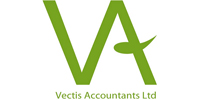If you want to run a legitimate enterprise, you must pay tax. It's worth understanding your tax obligations before you start up. That way you can make provisions and then concentrate on more stimulating aspects of running your business
Income tax, National Insurance contributions and VAT
Self-employed people pay tax on their business profits (not personal earnings), as well as National Insurance contributions (NICs).
People running limited companies are employees, which means they must pay income tax through the company's Pay As You Earn (PAYE) scheme, as well as NICs. The company must also pay Corporation Tax to HM Revenue & Customs (HMRC) each year, which, for many small limited companies, amounts to 19% of their profits after expenses and allowances have been accounted for.
Another consideration for many firms is value added tax (VAT), of course, which is levied on sale of most goods and services (there are exemptions). If your turnover exceeds the threshold of £90,000 in a 12-month period from 1 April 2024 (previously £85,000), your business must be VAT-registered. Once registered, you charge VAT and fill in a quarterly VAT return, submit it online to HMRC and pay your bill.
Keeping financial records
To remain within the law (and run your business effectively), you must maintain accurate financial records, detailing all money entering and leaving your business. These accounts must be kept for at least six years - even if the business ceases trading.
If you put a robust system in place from day one, then simple bookkeeping needn't turn into a nightmare - even if number crunching isn't your thing.
So what makes up a basic bookkeeping system? You will need a cash book, sales ledger, purchase ledger, and a wages book. For most businesses, such 'books' now take the form of software. An array of software packages offers a quick, cheap and convenient means of financial record keeping. At the push of a button they can reveal vital information that can help owner-managers run their businesses more effectively.
Minimising your tax liability
There are strict rules about what is a legitimate business expense that owner-managers should be aware of if they are to make their businesses tax-efficient.
There is also a range of allowances and reliefs. For example, money you invest in machinery and fixtures and fittings for your premises can be claimed as a capital allowance. Even money you spend before the business is officially launched can be claimed as a pre-trading business expense, providing you notify HMRC.
Of course they seldom provide their services for free, but a good accountant can help your business become tax efficient. The odd useful piece of advice, tailored specifically to your needs, could save your business a lot of cash.
Accountants can also make filling out forms and dealing with HMRC less painful, which alone can be well worth an accountant's monthly fee.
